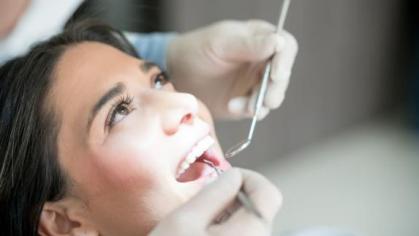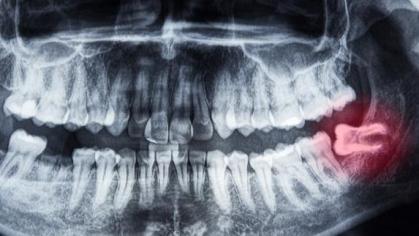How TMJ Disorder May be Affecting You
The connection of your lower jaw to the skull is the temporomandibular joint, or TMJ. You have two of these joints, one on each side of the head, which allows you to control the movement of your jaw so you can chew and talk. There are a few different factors that can cause you to feel pain in these joints, which are collectively called TMJ disorder. If you think you have TMJ disorder, be sure to visit a dentist to prevent any long-lasting health effects. Rutgers Health University Dental Associates has outlined some common causes and treatment methods so you can familiarize yourself with the condition.
Symptoms of TMJ Disorder
There are a few ways in which jaw pain caused by TMJ disorder can be felt by patients. Some of the common symptoms include:
- Tenderness of the jaw
- Pain in either of the two joints
- Pain or difficulty chewing
- Aching ear or facial pain
- Clicking or grating sound while opening of the mouth
- Locking of the jaw joint
If you are experiencing one or more of these symptoms consistently over time, it is time to schedule an appointment with your dentist. In some extreme cases, you may not be able to open or close your jaw completely, in which case you should seek medical attention as soon as possible.
Causes of TMJ Disorder
It can sometimes be difficult to pinpoint exactly what causes TMJ disorder, but there are a few leading reasons as to why people experience jaw pain. Like the other joints in your body, the bones that facilitate the movement of your jaw are covered in cartilage and separated by a disk that prevents immediate contact. If the cartilage or disk wears down or moves out of place, the bones in the joint can start rubbing together during jaw movement, which causes pain. People who grind or clench their teeth or have had a blow to the jaw are at more risk of developing TMJ disorder. Arthritis and systemic disease are also leading causes of deterioration of the TMJ. There are many orofacial pain disorders that mimic a temporomandibular disorder or other illnesses to consider. Make sure to let a doctor know if you have one of these risk factors for an accurate diagnosis.
Diagnosis and Treatment
If your jaw pain is affecting your daily life, it is time to see a dentist to receive a diagnosis. During your visit, a dentist will examine your jaw to see how well it can open and close and find the areas that are causing you pain. If there is enough evidence that you have TMJ disorder, you may require an X-ray, CT scan, or MRI to uncover issues with the joint that need correction.
Once the root of your pain has been discovered, there are a few ways in which you can be treated. Certain pain-relieving and anti-inflammation medications can be prescribed to help reduce your discomfort. You may be fitted for an oral splint or mouth guard to keep you from grinding your teeth. For more serious cases, arthroscopic or open-joint surgery can help clean up issues in your jaw.
Alleviate Your Chronic Pain
The effects of TMJ disorder can severely impact your life by changing how you talk and chew. Don’t let it take over these essential functions – visit Rutgers Health University Dental Associates to have the issue corrected. Our comprehensive orofacial pain services will provide you with effective treatment solutions to get you feeling normal once again. Contact our Newark or New Brunswick locations today to schedule an appointment.



